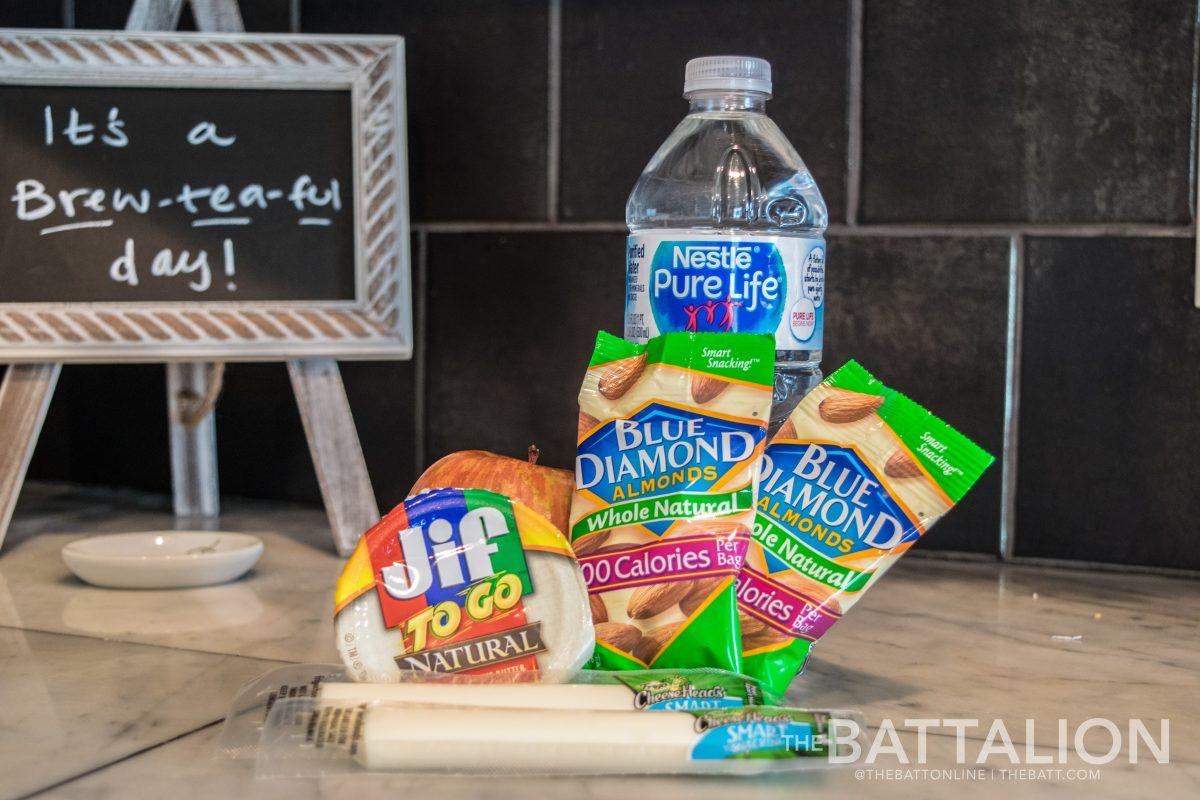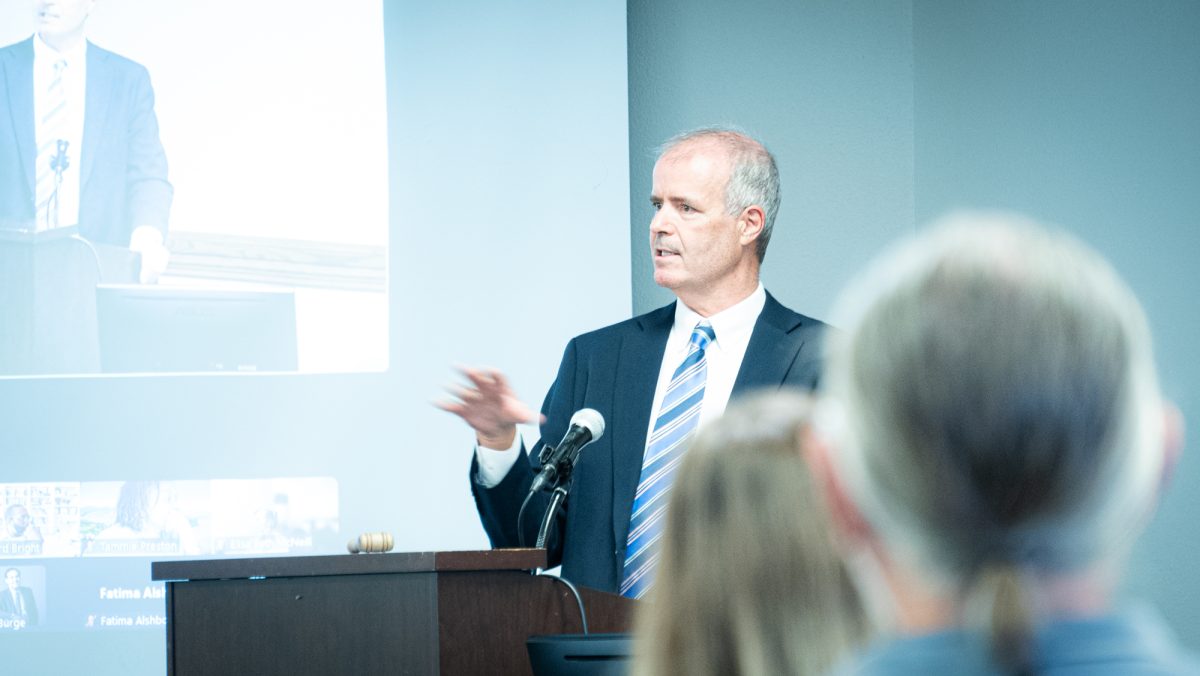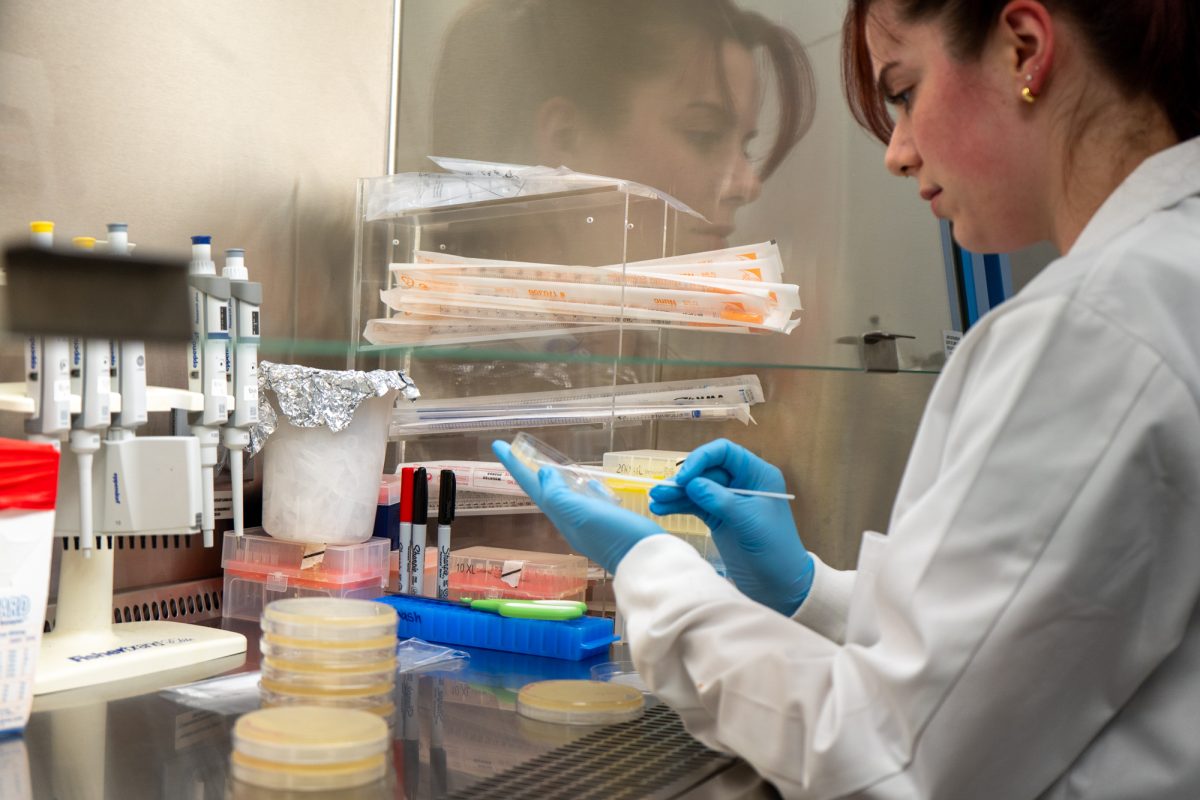With midterms approaching, stress can lead to unhealthy eating habits. Texas A&M experts shared a few tips on fueling up for tests without sacrificing a balanced diet.
Midterms tend to cause a lot of stress, according to Meghan Windham, registered dietitian for Student Health Service at A&M. When midterms come around, Windham said stress eating, or the lack thereof, is very common.
“I do get a lot of students coping with stress or eating whether its eating, eating more or eating less or eating a certain type of food,” Windham said. “I do see a lot of students during finals and midterms especially.”
Healthy coping mechanisms can help when dealing with stress and help prevent stress eating, according to Windham.
“One way to deal with stress and eating is finding coping mechanisms to help handle stress whether that is going for a walk, coloring, doing some sort of activity with others or calling a friend — trying to find other mechanisms outside of food,” Windham said. “Also prepare yourself in advance. Make sure you are fueling your body throughout the day.”
Windman said being able to recognize when you are only craving a certain food or are actually hungry is important.
“Ask yourself, ‘Am I truly hungry or is this just habit?’” Windham said. “If you feel like you are ever wanting to overate something, I recommend having fruits and veggies on hand. Or if you want to eat chocolate, pair that with fruit. For example, pair ice cream and an apple together.”
Having quick and on-the-go snacks can help a student be prepared for the day, according to Windham.
“You need to make sure you are getting your carbs and protein,” Windham said. “Some great snacks include, trail mix, apples with a nut butter, celery with a nut butter, Greek yogurt with granola or fruit, popcorn and some sort type of nut, hummus with veggies, rice cakes and nut butter, seeds and nuts, Kind Bars, Larabars, Luna Bars and Rx bars.”
Being able to sit down and enjoy a full meal is important, according to Rebecca Creasy, registered dietitian and a nutrition professor at A&M.
“After thirty minutes to one hour, you need a study break,” Creasy said. “By sitting down and having a full meal, this will give you a little bit of a break from studying. It will also allow you to get more total nutrients from your meal and help you stay more full for a longer period of time.”
Trying to completely avoid certain foods is often less helpful than emphasizing the foods you want to make a greater part of your diet, Creasy said.
“Cutting out any one thing from your diet places a rule on yourself and that is like a barrier of limitation,” Creasy said. “Instead of thinking about what to not include and what you should limit, it is important to think about what you should focus on.”
Fruits and veggies should be the foundation each meal is build on, according to Creasy.
“Focus on trying to base each meal around fruits and vegetables,” Creasy said. “Then add some type of protein whether it is beans, chicken, eggs or fish.”
The idea that eating later in the evening leads to weight gain has no factual basis, according to Creasy.
“It is true that your metabolism slows down while you sleep,” Creasy said. “However, it is a complete myth that you will gain weight if you eat after 7 p.m.”
A recent nutrition graduate is putting together a program to further help students learn how to meal prep and how to eat on a budget, according to Creasy.
“Life101 is going to have workshops for students,” Creasy said. “The workshops will be based on things like how to prep meals, how to eat affordably and possibly how food and finance come into play.”
For more information on the Life101 program and future events, visit the department of nutrition and food science website.
Midterms, stress and eating well
March 1, 2018
0
Donate to The Battalion
Your donation will support the student journalists of Texas A&M University - College Station. Your contribution will allow us to purchase equipment and cover our annual website hosting costs.









